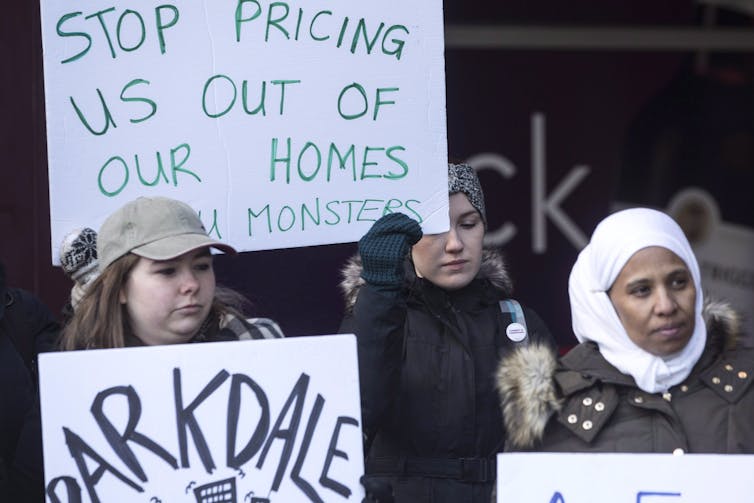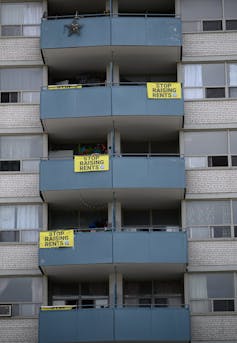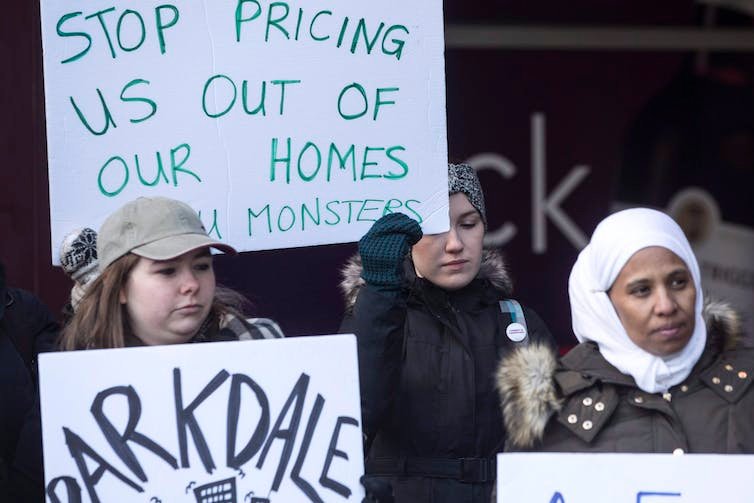One factor driving the housing crisis across the country is a shift away from publicly built housing toward large corporate-owned buildings where, as today’s guest Prof. Nemoy Lewis puts it, “housing is treated as a commodity, not a human right.”
For many people living in Canada, housing has emerged as one of the most challenging issues. This is especially true in our largest cities, where financial stress plagues many households.
Home ownership is widely out of reach and for renters, housing is scarce, expensive and precarious.
In Toronto, Canada’s largest city, vacancy rates are at their lowest levels in nearly two decades and average rents have jumped nearly 10 per cent — the sharpest increase in more than a decade. Last week’s rent strike in Toronto is just one indication that Canadians need solutions.
According to today’s guest, Prof. Nemoy Lewis from the School of Urban and Regional Planning at Toronto Metropolitan University, one of the factors driving this affordability crisis has been a shift away from publicly built housing toward large corporate-owned buidings. And the result, he says, is that now: “housing is treated as a commodity, rather than a human right.”
Prof. Nemoy discusses the disproportionate impacts these corporate landlords are having on Black and low-income communities — in income-polarized cities that are increasingly accessible to only a small group of wealthy people.

Read more in TC
Read more:
Multigenerational living: A strategy to cope with unaffordable housing?
Read more:
Cities must take immediate action against ‘renovictions’ to address housing crisis
Read more:
Five ways landlords unfairly control people’s lives
Read more:
What if we treat homelessness like a pandemic?
Read more:
Publicly owned land should be used for affordable housing, not sold to private developers
Resources

(@YSWtenants/X)
“The Uneven Racialized Impacts of Financialization” (A Report for the Office of the Federal Housing Advocate, June 2022) by Nemoy Lewis
The Tenant Class By Ricardo Tranjan
The Rise of the Corporate Landlord
Ethno-racial and nativity differences in the likelihood of living in affordable housing in Canada by Kate H. Choi and Sagi Ramaj (Housing Studies)
North York tenants join hundreds of Torontonians striking against above-guideline rent increases
Thorncliffe Park tenants protest above-limit rent hike (The Toronto Observer)
Listen and follow
You can listen to or follow Don’t Call Me Resilient on Apple Podcasts, Spotify, YouTube or wherever you listen to your favourite podcasts.
We’d love to hear from you, including any ideas for future episodes. Join The Conversation on Twitter, Instagram and TikTok and use #DontCallMeResilient.

Felecia Phillips Ollie DD (h.c.) is the inspiring leader and founder of The Equality Network LLC (TEN). With a background in coaching, travel, and a career in news, Felecia brings a unique perspective to promoting diversity and inclusion. Holding a Bachelor’s Degree in English/Communications, she is passionate about creating a more inclusive future. From graduating from Mississippi Valley State University to leading initiatives like the Washington State Department of Ecology’s Equal Employment Opportunity Program, Felecia is dedicated to making a positive impact. Join her journey on our blog as she shares insights and leads the charge for equity through The Equality Network.




